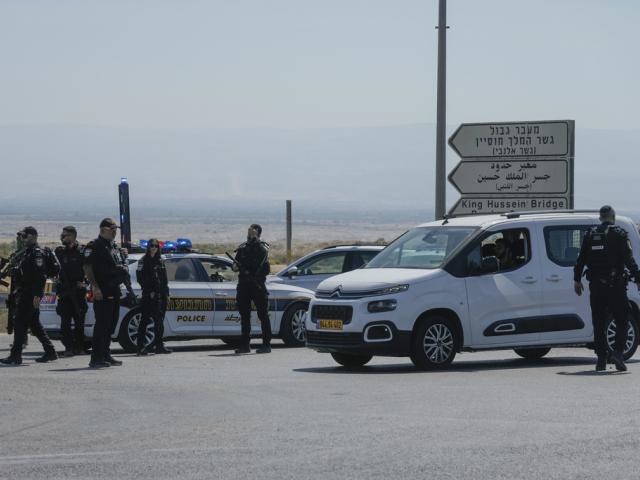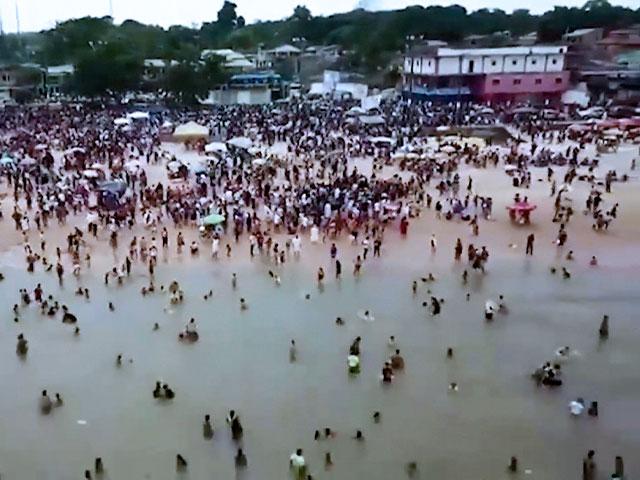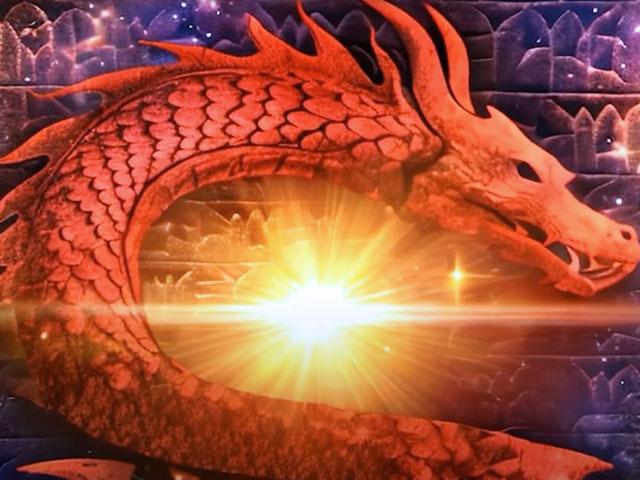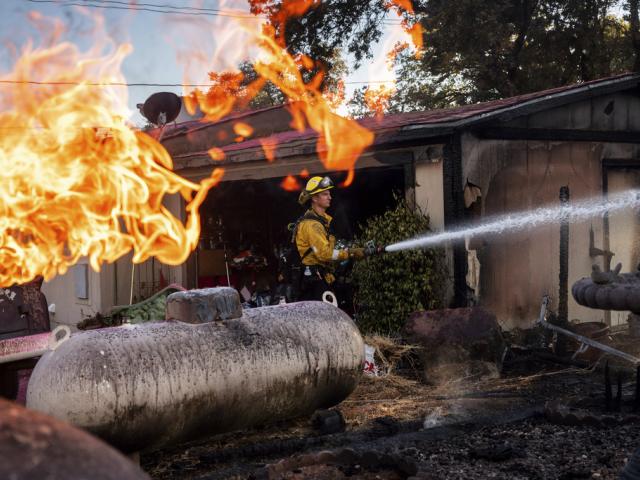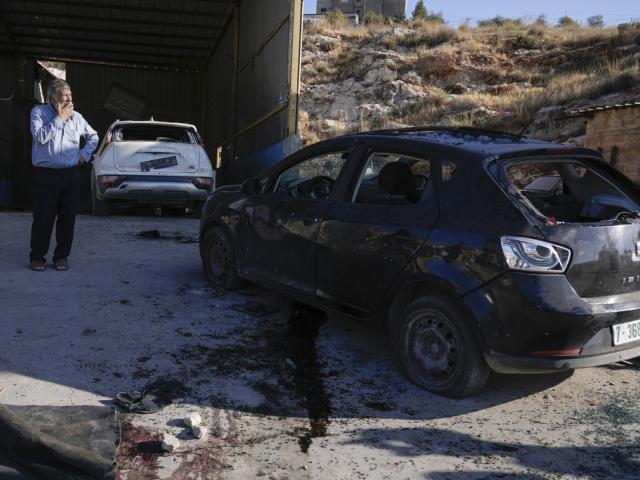JERUSALEM, Israel – As Iran manufactures more missiles for Hezbollah in Lebanon, Israeli troops are gathering in the north near the Lebanese border. In an interview with CBN News, retired Israeli Major Amiad Cohen expanded on why Israel needs to wage a different war against Hezbollah than the 2006 conflict.
To watch the interview, click on the video above. The following is the text of our talk with Major Cohen:
Chris Mitchell: Amiad Cohen great to be with you here on CBN News. (You're the) head of the Herut Center, a conservative think tank here in Jerusalem. And you wrote an article called "The Last Lebanon War" in Tablet Magazine. Tell us your main message here and why you wrote it.
Amiad Cohen: So, Israel has a habit of living the "Groundhog Day" in front of its enemies. We're in Gaza again and again, going back and forth and raiding in Gaza in the past 20 years and having a deep conflict there. And the same thing in Lebanon since the 70s. We're again in a raiding structure against Lebanon, with no real endgame and outcome. And every time we're getting stronger, Hezbollah is getting stronger.
We need to end that Groundhog Day once and for all. And the only way to do that is by understanding the strategic, decisive points that our enemies – how they think about it. And the most important thing for Hezbollah in Lebanon is their land and territory. And there's one thing: we can't end the war in the same starting point as, as we did in the past. So the end game of the Lebanese war, instead of having a third Lebanese war and a fourth one and a fifth one, we have to end this now.
The last Lebanese war (2006) with the Israeli border moving to the Litani River. There's two basic reasons for that. A, they need to lose territory to understand we're not playing. You can't go back to square one after starting a war and attacking Israel on October 8th. The second thing is, there's no territorial border between Israel and Lebanon today. The border today, the Lebanese Hezbollah – actually the Iranians, if you understand what's the power structure – have an elevated ground over the Israeli towns in the northern border. That's why they are able to shoot anti-tank rockets and to raid. And that's what we are afraid of. That's why we are going to protect the northern border, to take over and occupy these cities and destroy like they did in October 7th in the south.
The Litani River, which is 20 kilometers to the north, is a border that is a barrier that (we) can protect. It's a cliff of 400 meters tall that will protect us from the ground invasion of Hezbollah operatives.
We will need to find – still protect ourselves from the rockets. But the only solution to end this conflict with a very decisive victory by Israel is to tell Hezbollah there's one end for this war. Israel's going to take territory from Hezbollah and from Lebanon, from Iran. And we will have a border to protect us.
Mitchell: Wow. You're not only the head of the Herut center, but you're also a major in the reserves. You've been up there for four months, and you're heading back as well. What have you seen up there on the border?
Cohen: First of all, it's devastating to look at the cities that are deserted now, the Israeli cities. There's 82,000 Israeli refugees now who left their houses, went back, to different places and hotels in Israel. And the cities are deserted. That's a strategic mistake by Israel. And that's devastating. I lived in some of these cities in the past.
And to see empty towns, you can't understand, how it's a strategic loss for Israel in that perspective. The other part of it is I can see that Israel can win this war. We have a strong army, and people are afraid of the Iranian army, Hezbollah, on our border. They're good. We're not underestimating them. But we are much better. We are much stronger. And this is a message the world needs to understand. Hezbollah is afraid of having a full-scale war with Israel because at the end of the day, we have a strong army. We have a strong military industry. We have a stronger country, and we believe in what we do. We can win this war, and we will and should win this war. We don't want to have a war. We prefer them giving up. But if (Resolution) 1701, the UN decision from 2006, is not fulfilled by the U.N. and by Hezbollah, we need to do that by force. We cannot live with this kind of threat on our northern border.
So Israel can win this war – should. The IDF has strong soldiers. The reserve army and the regular army are very, let's say, one. They see the cities and they are willing to fight, kill, and die to protect our towns. That's why we have the state of Israel to prevent things like this, like the Holocaust happening here in Israel.
Mitchell: Final question, Amiad: what's your main message for not only Israel but for people in the West right now?
Cohen: the battle is not a battle between Israel and Iran. The battle is international between Western, Jewish Christian ideas and moral arguments, versus the Muslim, either the Sunni or the Shiites' jihad perspective – that they don't believe about having, let's say, a modern good moral life. They want to destroy everything the West is building, and they're working together with Russia and with China against the West. And this is only the first attack. And if we, Israel, do not have a decisive victory here in the northern border and in Hamas in Gaza, this is only the beginning.
And they will give them backwind for attacking the U.S. and Europe, and much more than that. (It's) not Israel (that) needs to win this war, but the West has to win this war. And that's why we need the West's support. Because this is the battle about the Jewish Christian tradition and values against the Muslim jihad who wants to destroy everything that the West built.
Mitchell: It's a very sobering, very important message for such a time as this. Amiad Cohen, great to be with you.
Cohen: Thank you very much for having me.
Did you know?
God is everywhere—even in the news. That’s why we view every news story through the lens of faith. We are committed to delivering quality independent Christian journalism you can trust. But it takes a lot of hard work, time, and money to do what we do. Help us continue to be a voice for truth in the media by supporting CBN News for as little as $1.










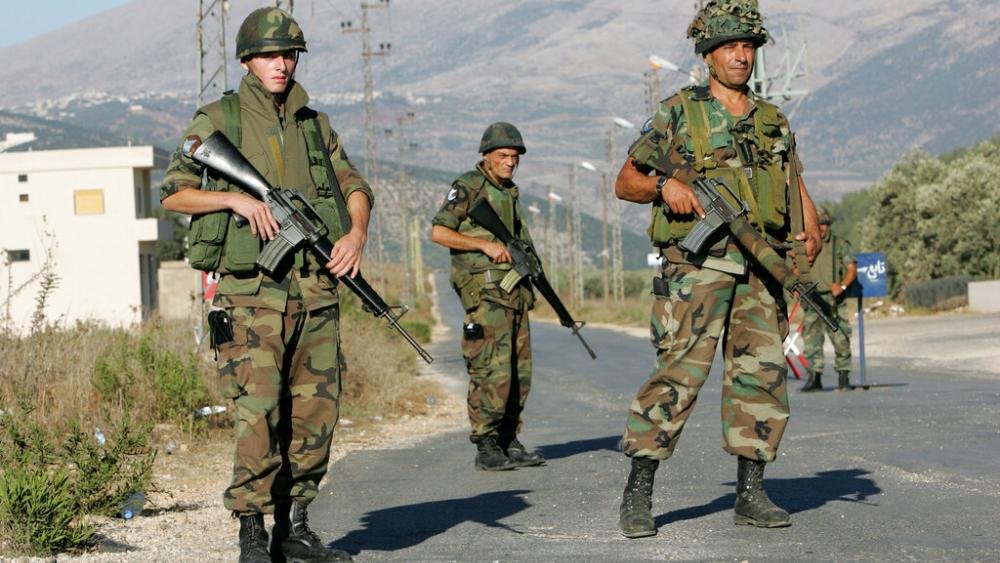

 Support CBN News
Support CBN News



